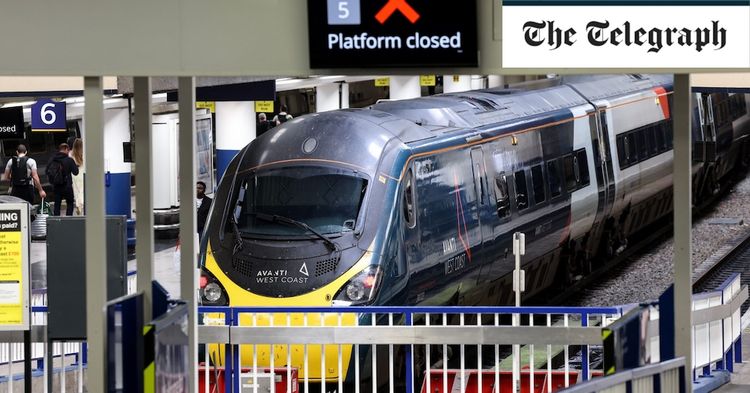Train strikes: April dates, drivers' walkouts, and the services affected

Workers who operate trains for 16 different railway companies will go on strike again due to their ongoing disagreement regarding payment. This could cause a disturbance for families throughout the country during the Easter vacation period.
The strikes that are happening now are part of a long-standing dispute between the Aslef union and their employers. This latest round of walkouts is just the most recent in a series of similar protests that have been happening over the past 20 months.
The leaders of the unions declared that there will be different instances of employees leaving work which will impact the transportation system of London Underground.
This blog post will provide you with all the important information about the current strikes on national rail.
Strike Schedule: When Are They Coming?
Which Lines Are Impacted By The Train Disruption?
On the 5th of April, the drivers of Avanti West Coast, East Midlands Railway, West Midlands Trains, and CrossCountry will commence a strike.
On Saturday, April 6th, there will be strikes affecting the Chiltern, GWR, LNER, Northern, and TransPennine train companies.
On Monday, April 8th, there will be work stoppages occurring on several train lines. The strike will affect c2c, Greater Anglia, GTR Great Northern Thameslink, Southeastern, Southern/Gatwick Express, South Western Railway main line and depot drivers, as well as SWR Island Line.
What's Causing The Strikes?
The Aslef union declared that it plans to intensify its efforts to put pressure on the train companies and the government, which it believes are refusing to listen. These efforts come after a long period of strikes that have occurred over the course of 20 months.
According to Aslef, train drivers haven't seen a salary increase in five years, since April 2019. The union leaders claim that they've been in discussions with the train operating companies represented by the Rail Delivery Group (RDG), but have not received any updates after obtaining a renewed authorization for six more months of industrial action just last month.
Mick Whelan, who is the general secretary of Aslef, mentioned that they had recently declared a fresh decision to take industrial action. This was because of the severe and strict anti-union laws imposed by the Tories, which require members to vote every six months. As a result, they had urged the Government and train companies to initiate constructive dialogue with them and come up with a new salary agreement for train drivers who had not received any pay raise since 2019.
Once again, our members have cast their votes in favor of striking at an overwhelming rate.
The votes that were cast demonstrate that train drivers have refused to accept the absurd proposal that was presented to us by the Rail Delivery Group (RDG) back in April of last year. The RDG was fully aware that their offer would be declined, as it was an attempt to take away all the hard-won terms and conditions that we had negotiated over time, which our members could never agree to.
Train drivers have consistently voted to take action towards receiving a fair increase in pay, ever since that time. This makes Mark Harper, who is the Transport Secretary, dishonest when he claims that the offer should have been presented to the members.
If drivers believed that the offer given to them was satisfactory, they would not continuously call for industrial action. The offer was rejected in April of last year and it is known by Mr. Harper.
We have provided numerous chances for the Government to engage in negotiations with us, but it has become evident that they have no intention of settling this conflict. They seem content with prolonging the situation indefinitely.
Train Companies' Statements?
A representative from Rail Delivery Group, an organization that speaks for the 16 train companies affected by the strikes, commented that no one benefits when a protest affects people's day-to-day existence and sources of income. They emphasized their dedication to lessening any interference for commuters.
Our intention is to settle this disagreement, but it is important for the Aslef leaders to understand that citizens who are financially strained are still providing an additional £54 million each week to support the functioning of the services post the Covid pandemic.
We are still trying to reach a consensus with the leaders of Aslef and are willing to have discussions in order to resolve this conflict.









































